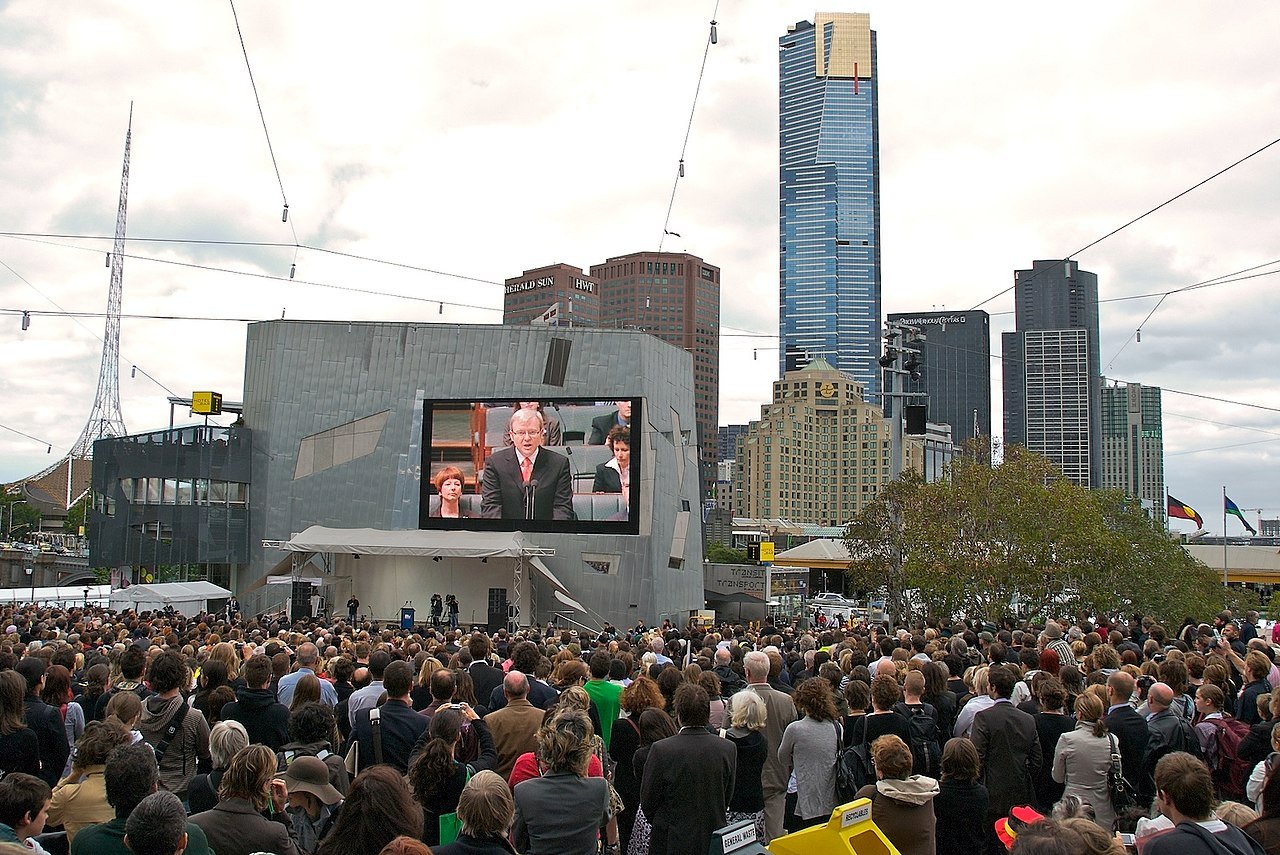On February 13, 2008, Australian Prime Minister Kevin Rudd made a historic apology to Indigenous Australians for the injustices of the “stolen generations.” This apology, delivered in the Australian Parliament, was a significant step towards reconciliation, acknowledging the suffering of Indigenous communities and committing to a future of respect and equality.
The “stolen generations” refers to the Aboriginal and Torres Strait Islander children who were forcibly removed from their families by Australian government policies. These policies, implemented from the late 1800s to the 1970s, aimed to assimilate Indigenous children into white society by removing them from their cultural heritage and families. The impact of these policies was devastating, resulting in the loss of language, culture, and connection to their communities for many Indigenous Australians.
The apology delivered by Prime Minister Kevin Rudd was a long-awaited recognition of the pain and suffering endured by the stolen generations. It was a public acknowledgment of the injustices committed by previous governments and a commitment to righting those wrongs. The apology also aimed to promote healing and reconciliation between Indigenous and non-Indigenous Australians.
The significance of this apology cannot be overstated. It marked a turning point in Australia’s history, acknowledging the deep-rooted trauma and discrimination experienced by Indigenous Australians. The apology was a step towards addressing the ongoing effects of colonization and systemic racism, and it was a powerful symbol of the government’s commitment to creating a more inclusive and equal society.
The apology was met with a mixture of emotions from Indigenous Australians. For many, it was a moment of validation and healing. It provided a sense of closure and recognition for the pain and suffering endured by their families and communities. The apology also offered hope for a future where Indigenous cultures and traditions are respected and celebrated.
However, some Indigenous Australians felt that the apology was not enough. They believed that concrete actions and policies were needed to address the ongoing inequalities faced by Indigenous communities. While the apology was an important step, it was just the beginning of a long journey towards true reconciliation.
Since the apology, there have been efforts to address the issues faced by Indigenous Australians. The government has implemented programs and policies aimed at improving education, healthcare, and employment opportunities for Indigenous communities. However, there is still much work to be done to address the systemic issues that contribute to the ongoing disadvantage experienced by Indigenous Australians.
The apology to Indigenous Australians in 2008 was a significant moment in Australian history. It was a public acknowledgment of the injustices committed against the stolen generations and a commitment to creating a more inclusive and equal society. The apology marked a step towards healing and reconciliation, but it also highlighted the need for ongoing efforts to address the systemic issues faced by Indigenous communities.
In conclusion, the apology delivered by Prime Minister Kevin Rudd on February 13, 2008, was a crucial moment in Australian history. It acknowledged the pain and suffering endured by the stolen generations and represented a commitment to reconciliation and equality. While the apology was an important step, it also highlighted the ongoing challenges faced by Indigenous Australians and the need for continued efforts to address systemic issues. The apology serves as a reminder of the importance of acknowledging and learning from the past to create a better future for all Australians.
SEO Excerpt:
On February 13, 2008, Australian Prime Minister Kevin Rudd made a historic apology to Indigenous Australians for the injustices of the “stolen generations.” This article explores the significance of the apology, its impact on Indigenous communities, and the ongoing efforts towards reconciliation. Learn more about this pivotal moment in Australian history and the ongoing journey towards creating a more inclusive and equal society.

